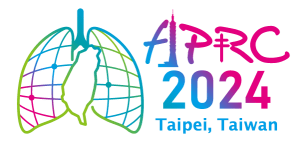Plenary Session 6:Advance in TB: Current & Future
| Time (GMT+8) |
Topic | Speaker | Country / Region |
|---|---|---|---|
| 16:30-17:00 | New Diagnosis | Prof. Satoshi Mitarai | Japan |
| Time (GMT+8) |
Topic | Speaker | Country / Region |
| 17:00-17:30 | Recent advance in the treatment of tuberculosis | Prof. Giovanni Battista Migliori | Italy |
New Diagnosis
Abstract :
New diagnostic methods are the key to the better detection and control of tuberculosis. The diagnosis will cover the latent infection, incipient active, and bacteriologically detectable developed tuberculosis diseases. The bacteriological diagnostics will be adopted for the active case finding. In this context, we already have several new molecular diagnostic technologies, however, many of them are not real point-of-care testing (POCT). In addition, the clinical specimens are often sub-optimal especially in sputum vulnerable people like paediatrics, women and PLHIV. Then, it will be necessary to improve specimen collection technology and to develop real POCT with a capacity of detecting primary drug resistances.
One potential item for the improvement of sputum collection is Lung Flute ECO (LF ECO, Acoustic Innovations, Japan). It is a kind of musical instrument which sound waves induce vibrations in the lung cavity, reducing mucus viscosity and loosen mucus from the walls of the lung. A randomised cross-sectional study in Cameroon showed positive results; An additional 6.5% of participants were able to produce sputum with volume >1mL after use of the LF ECO as compared to after video instruction alone (OR 2.6 (1.9-3.7)), Of the 189 people who did not produce >1mL sputum following video instruction alone, 62% of these (117/189) produced >1mL sputum after use of the LF ECO. LF ECO will potentially increase the sensitivity of all types of TB bacteriological examinations.
Though it is not a POCT, targeted next generation sequencing (tNGS) will be a strong tool to diagnose any drug resistant TB within a few days. One of commercially available tNGSs, Deeplex Myc-TB (Genoscreen, France), has a capacity of detecting 15 drug resistances at one time. For the appropriate treatment of any drug-resistant TB, such comprehensive technology should be ulitised widely.
Satoshi Mitarai

Japan
Recent advance in the treatment of tuberculosis
Abstract :
Important developments are occurring in the treatment of both drug-susceptible (DS) and drug-resistant (DR) tuberculosis (TB).
At the end of the presentation participants will be updated on the news related to the treatment of both DS-and DR-TB.
The TB drug pipeline is gradually reducing the duration of anti-TB treatment from 6 to 4 months for DS-TB and from 9 to 6 months for DR-TB. The world Health Organization (WHO) has consolidated and updated both treatment guidelines in 2022 and the UNION has recently published in the IJTLD specific clinical standards on the management of DS-TB in adults and children, adverse events and drug dosing.
Vis-a-vis the rationale for designing an anti-TB regimen for DS-TB the 2HRZE/4RH regimen will be discussed, as well as the two new 4-month regimens: the rifapentine-containing 2HPMZ/2HPM regimen for people aged 12 years or more and the 2HR(E)/2HR regimen for children and adolescents between 3 months and 16 years with non-severe TB. The results of the RIFASHORT and TRUNCATE-TB trials will be specifically discussed.
After discussing the new WHO classification of drugs to manage DR-TB, the WHO-recommended regimens to manage mono-resistant TB will be presented as well as the new definitions.
Finally, the regimens to manage multidrug-resistant (MDR-) and extensively drug-resistant (XDR-) -TB will be discussed, including the BPaL and BPaLM regimens vis-a-vis the results of the NixTB, Zenix and TB-practecal trials. The principles to design the 9-11 month and longer regimens will be also discussed.
To conclude a critical review of the ongoing and future trials will be done.
Giovanni Battista Migliori

Italy
Former Secretary General of the ERS and President of the UNION (European Region), he is currently Chief Editor of the International Journal of Tuberculosis and Lung Disease and Section Editor for TB of the European Respiratory Journal and chair of the GTN (Global Tuberculosis Network).
Prof. Jann-Yuan Wang

Taiwan
Prof. Seiya Kato

Japan




